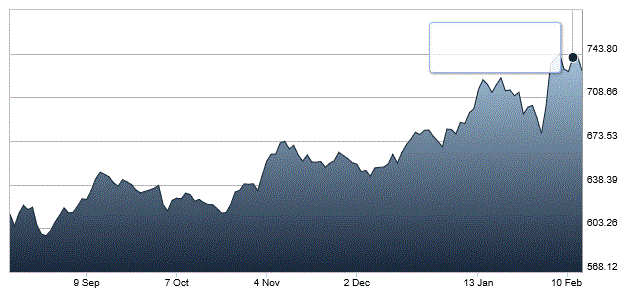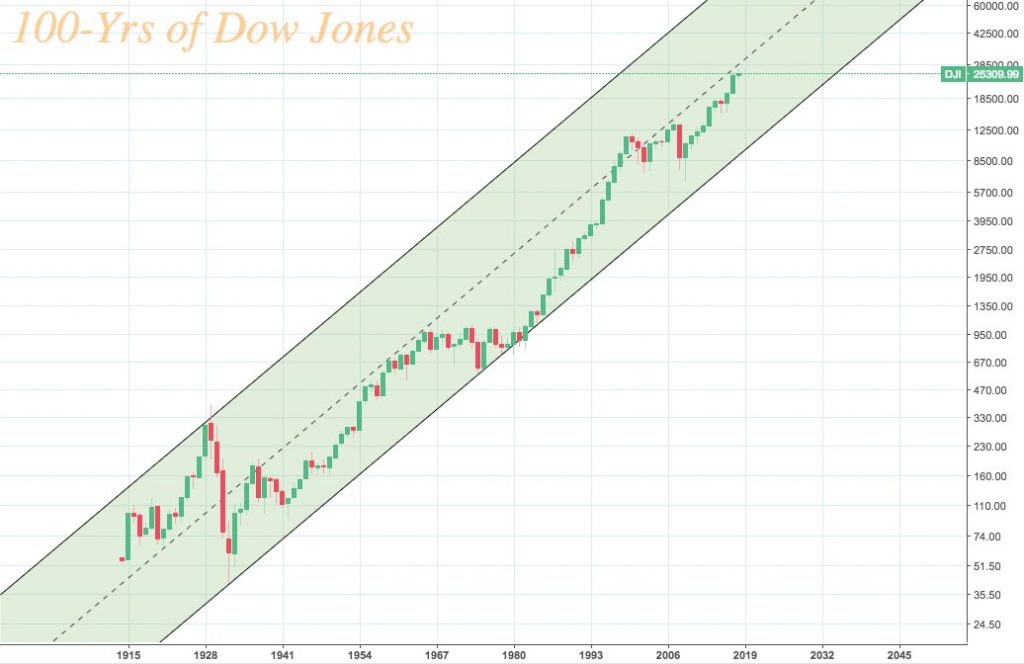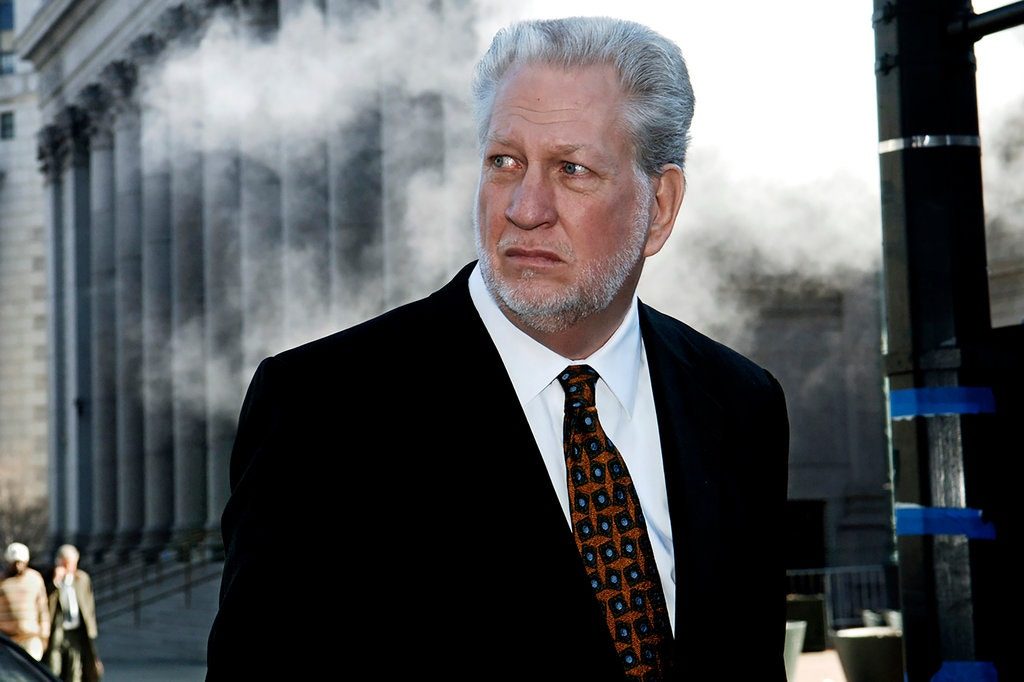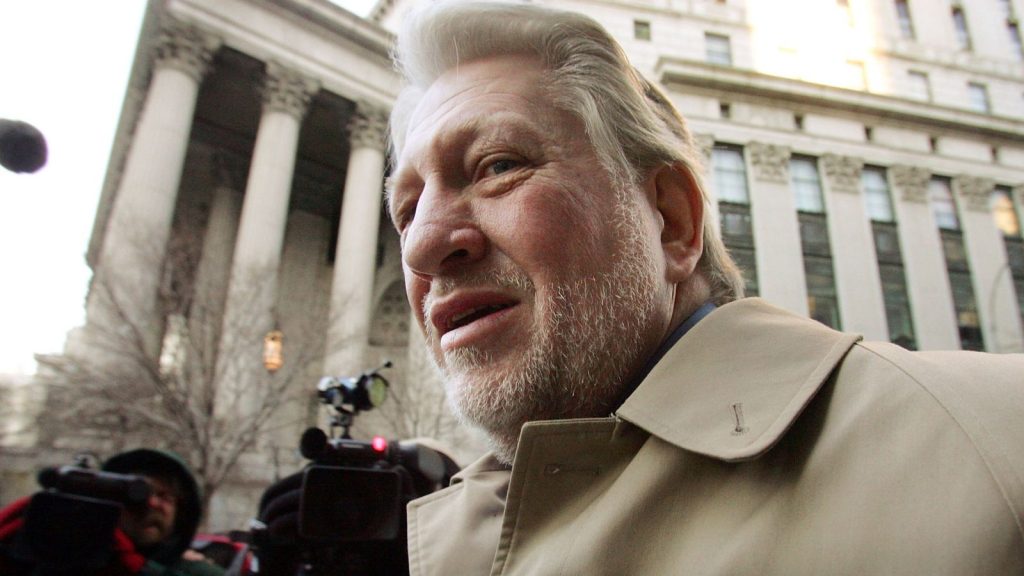Monthly Archives: February 2020
Greencoat UK Wind Feb Dividend
Tomorrow Greencoat UK Wind pays out its dividend.
https://www.greencoat-ukwind.com/
£0.01735 a share.
The total voting rights figure will be 1,517,537,310
https://www.londonstockexchange.com/exchange/news/market-news/market-news-detail/UKW/14330541.html
thus:-
£0.01735 a share x 1,517,537,310 = £26,329,272.3285
£26m
Michael Burry Interview – Are We In An Index Bubble?
The Schroder Oriental Income Fund
The The Schroder Oriental Income Fund, has the investment objective of the Company is to provide a total return for investors primarily through investments in equities and equity related investments, of companies which are based in, or which derive a significant proportion of their revenues from, the Asia Pacific region and which offer attractive yields.
Its top ten holdings are:
Taiwan Semiconductor Manufacturing Co Ltd 8.1% of the fund
2 Samsung Electronics Co Ltd 5.9% of the fund
3 Swire Pacific Ltd 3.6% of the fund
4 FORTUNE REIT NPV (HK LISTING) 3.5% of the fund
5 Sands China Ltd 3.5% of the fund
6 BOC Hong Kong Holdings Ltd 2.8% of the fund
7 Kerry Properties Ltd 2.5% of the fund
8 Hon Hai Precision Industry Co Ltd 2.5% of the fund
9 BHP Group PLC 2.5% of the fund
10 Singapore Telecommunications Ltd 2.5% of the fund
HM Government Borrowing, January 2020
Another month, guess what, take a lucky guess, it is the same old story, HM Government, spends more money than it receives via taxes and duties.
Another deficit month, thus to bridge the gap, needs to borrow on the bond market In January 2020 , the HM Government had to borrow money to meet the difference between tax revenues and public sector expenditure. The term for this is The PSNCR: The Public Sector Net Cash Requirement. There were “only” 4 auctions of Gilts (UK Government Bonds) by the UK Debt Management Office to raise cash for HM Treasury:-
28-Jan-2020 0 7/8% Treasury Gilt 2029 2,750.000 Million
21-Jan-2020 1¼ % Treasury Gilt 2041 2,545.8720 Million
14-Jan-2020 0 5/8% Treasury Gilt 2025 3,250.0000 Million
09-Jan-2020 0 1/8% Index-linked Treasury Gilt 2028 1,056.0370 Million
07-Jan-2020 0 7/8% Treasury Gilt 2029 3,162.4970 Million
When you add the cash raised:-
£2,750.000Million + £2,545.8720Million + 3,250.0000Million + £1,056.0370Million + £3,162.4970Million = £12,764.406 Million
£12,764.406 Million = £12.764406Billion
On another way of looking at it, is in the 31 days in Jan 2020, HM Government borrowed:- £411.7550322580645Million each day for the 31 days.
We are fortunate, while the global banking and financial markets still has the confidence in HM Government to buy the Gilts (Lend money to the UK), the budget deficit keeps rising. What is also alarming, is the dates these bond mature 2025, 2028, 2029 and 2041. All long term borrowings, we are mortgaging our futures, but at least “We Are In It Together….”
Ray Dalio: A clever warning
BATG: Battery ETF
The Legal & General battery ETF is growing.https://www.londonstockexchange.com/exchange/prices-and-markets/ETFs/company-summary/IE00BF0M2Z96ZZGBXETF2.html
Investing in Lithium Ion Battery stocks

The system is broken’: the billionaire investor Ray Dalio who fears a return to the 1930s.
https://www.theguardian.com/business/2020/feb/09/ray-dalio-billionaire-hedge-fund-capitalism
Ray Dalio, who has a near $19bn fortune, is one of a handful of the 0.01% to go public with concerns about the system that created that wealth
Ray Dalio, the billionaire investor, has just released his first children’s book. It’s a bedtime story he hopes will inspire a new generation of entrepreneurs and leaders. There are other stories that keep Dalio awake at night.
Stock markets have soared in recent years, employers are struggling to find workers, inflation is under control. And yet: “This period is very similar to that of the 1930s,” he says. “We’re at each other’s throats when these are the best of times. I worry about the bad times.”
Dalio, the founder of investment firm Bridgewater Associates, one of the world’s largest hedge funds, and a man with a personal fortune that tops $18.7bn, is one of a handful of the 0.01% who have gone public with their worries about the system that created that wealth.
“The world has gone mad, and the system is broken,” he wrote in a series of viral posts on the issues he sees in the modern economy last year.
The gap between rich and poor has grown too wide, and most people have not seen real income growth in decades, he wrote. The economy is stacked against those at the bottom. Education, healthcare, the tax system, the prison system and political deadlock have created a situation that presents an “existential risk” to the US and the rest of the world. It was a searing indictment of the status quo, not least because it came from someone who had benefited from it the most.
While on the surface the financial numbers of the world economy look good, it is clear that the Great Recession has left a pool of seething resentment in its wake. Nationalism is sweeping the world and the political order is being overturned. As Eric Hoffer pointed out in The True Believer, his book on mass movements, the French and Russian revolutions came not at economic and social nadirs, but as living conditions were improving.
Dalio hopes, in part, that his latest book can help people at an individual level to address the dilemmas they now face and will always face – no matter what the political or economic headwinds. An illustrated distillation of his bestselling book Principles for Success, the book offers the life lessons Dalio says helped him not only amass one of the world’s largest fortunes but live a successful life.
In the book, an unnamed hero in a backpack and Pharrell Williams hat negotiates a series of problems, a dark wood, a mountaintop and the loss of said hat, as he chases a blue diamond. While it’s not really clear what the diamond represents (maybe $18.7bn?), it’s really about the journey. Over 157 pages, Dalio shares his insights, a five-point system for assessing our weaknesses and overcoming problems, and somewhat hokey aphoristic formulae like Dreams + Reality + Determination = A Successful Life and Pain + Reflection = Progress.
The Hungry Caterpillar it ain’t.
He says he wrote the book because friends said they wanted it for their kids. It’s hard to see pajama-clad children clamoring for Principles (“Daddy, is there a follow-up on compound interest?”) but the original Principles has sold over a million copies and been downloaded 3 million times, so who knows? Kids these days!
“I think everybody would benefit from writing down their principles, not in an abstract way,” says Dalio. “It serves a purpose of bringing clarity to your thinking. It’s a joy. I think these principles apply to anybody, whatever their circumstances are.” He is hoping some of his peers will follow suit.
But while he is hopeful that his principles can be a practical benefit at the individual level, Dalio is worried about the future of society those individuals live in. “I think the capitalism system needs to be reformed, because first of all it’s not fair. And secondly, it’s not optimally productive.”
The system that Dalio grew up in, he says, is very different to the one we have today. Born in 1949 the son of a jazz musician, Dalio grew up in the Jackson Heights neighborhood of New York City’s Queens. He had loving parents, attended a good public school and entered “a job market that offered me equal opportunity”.
He began trading at the age of 12 and opened Bridgewater in 1981. By 2005, it had become the largest hedge fund in the world, betting on “macro” world-shaping economic events. He made investors a fortune correctly predicting the last recession when others bet it would be business as usual.
To have these things and use them to build a great life is what was meant by living the American Dream,” he wrote last year. Now, Dalio argues, capitalism has broken that promise. The relentless pursuit of profit over people has created a structural flaw that threatens to bring the whole system down. “All systems should evolve. We all need to evolve. We need to be reformed constantly,” says Dalio.
He is, of course, not alone in thinking this. Democratic presidential candidates including Bernie Sanders and Elizabeth Warren would be entirely in agreement if they weren’t so against him. The problem for Dalio is whether anyone can hear this message from the mouth of a billionaire. Sanders has said billionaires should not exist. Warren is selling mugs stamped “Billionaire Tears” as she pushes plans for a huge hike in taxes on the super wealthy.
Dalio won’t talk politics in the specifics, but he says he has a strong aversion to any kind of prejudice, and worries about the vitriol being leveled at him and his Croeseus-like cohorts.
“When we get into an environment of demonizing people or stereotyping people. It’s like if you call a leader, a billionaire, evil … it’s almost like saying you’re a poor person, then that’s evil or you’re a Jew or a black person, and that’s evil. I think demonizing a category of people is a very bad thing,” he says.
If we are to find a way out of this mess, he says, it’ll be “with the collective involvement of people who bring not only different perspectives, but different skills to bear” on the problems.
“This engineering exercise has got to be done with skill so that there’s a redistribution of opportunity and a redistribution so that productivity is increased,” he says. “Generally speaking, the capitalists focus on increasing the size of the pie, but not on dividing it well. Socialists focus more on dividing it well, not on how to increase its size.
“I think that we have to work together and this all has to be done in a bipartisan or not partisan way, because I think that right now you’re producing such anger and division and that is our greatest risk,” he says.
It’s a belief that many of his plutocratic peers share, says Dalio. The reaction to his capitalist critique from fellow billionaires has been “overwhelmingly agreement, although not open agreement,” he says.
“I’ll tell you what the fear is. It’s not that they will be taxed more. That’s interesting, because I think most people think that that’s their main fear. The main fear is that the system of making productivity work will be hurt,” he says.
Just like corporations, billionaires are people too. Dalio is not alone in believing he has an answer to the problem that created him. Donald Trump rode into office on a wave of populist economics. Mike Bloomberg (net worth $60bn) and Tom Steyer ($1.6bn) want to replace him.
Theirs is that old, radically conservative, message: everything must change so that everything can stay the same. The question now is whether the system that produced Dalio, his principles and peers can survive the world they created. And if not, what comes after?
Over 100 years of the Dow Jones Industrial Average.

United Utilities Feb Dividend.
On the 3rd Feb this month, United Utilities paid out is Feb 2020 Dividend.
14.2p a share.
The total voting rights in the company were 681,888,418
thus:
681,888,418 x £0.142 = £96,828,155.356
That is £96m
5% yield.
Technology Investment
Bernie Ebbers = WorldCON
Bernie Ebbers is dead.

Bernie Ebbers, who has died at the age of 78, was a big man in every sense of the word.
The bearded former nightclub bouncer officially stood at 6 foot 4 inches but, typically dressed in a Stetson and cowboy boots, looked even bigger.
The company he built, WorldCom, briefly became one of the world’s biggest telecoms businesses and Mr Ebbers one of America’s richest people.
However, unfortunately for Mr Ebbers, he is more likely to be remembered for his role in what remains one of the world’s biggest accounting frauds.
His rise was one of the great rags-to-riches stories that America loves
Born in 1941 in Edmonton, Canada, Mr Ebbers was the son of a travelling salesman who relocated his family first to California and then to New Mexico, where he attended school on a Navajo reservation.
After college, Mr Ebbers returned to Canada, where he worked initially as a nightclub bouncer and as a milkman.
He later recalled: “Delivering milk day to day in 30-below-zero weather isn’t a real interesting thing to do for the rest of your life.”
He went on to work as a basketball coach, before working in a clothing warehouse and then buying a motel in Mississippi, which he went on to build into a small chain.
In 1984, the opportunity to do something bigger came along.
The Reagan administration, as with the Thatcher government in Britain at that time, was opening up America’s telecoms sector to competition.
AT&T’s effective monopoly was taken away from it as the government sought to encourage others to enter the sector. The deeply religious Mr Ebbers was invited by David Singleton, one of the partners at his local prayer group, to meet two entrepreneurs, Murray Waldron and Bill Fields, who were keen on setting up such a business.
The four met at a diner in Hattiesburg, Mississippi, to thrash out a plan that involved reselling long-distance lines to small and medium-sized businesses. The enterprise was, at the suggestion of a waitress, named Long Distance Discount Service. The company was to trade under that moniker until, in 1995, it changed its name to WorldCom.
By then, it was one of America’s biggest telecoms players, having acquired dozens of smaller players worth billions of dollars in total.
The company first burst onto the City’s consciousness in a big way when, in late 1997, it gate-crashed what would have been the biggest deal in British corporate history.
BT had announced plans in November 1996 to buy MCI, a US telecoms rival, in a cash-and-shares deal valuing the latter at a then-massive £15bn. The combined business would have been second only to AT&T, the US giant, in the global telecoms market.
Over subsequent months, as MCI’s financial performance worsened, BT sought to reduce the price it was paying. Then, to its dismay, WorldCom emerged with a higher offer.
With typical bravado, Mr Ebbers told reporters: “We are able to make a superior offer for MCI because we can realise far greater synergies and savings than BT can. They just don’t live here.”
The enlarged MCI-WorldCom was, by then, a major force in what was then the emerging internet market. Mr Ebbers had realised, early on, that there was more money to be made by owning fibre-optic lines down which data could be sent than there could from re-selling space on long-distance phone lines.
All the while, despite resembling a swaggering cowboy, he was carefully cultivating the image of a simple ‘aw shucks’ Southern Baptist who had little understanding of the products his company sold. For many years he did not use a mobile phone and claimed he only sent his first email in 1999.
That was the year in which WorldCom’s stock price peaked and it achieved a stock market valuation of $160bn.
It was also the year in which the company embarked on what Mr Ebbers hoped would be its biggest deal yet – a $116bn cash-and-share offer for rival Sprint in what would have been a combination of America’s second and third-largest telecoms companies.
But the deal was blocked by competition regulators in both the United States and the EU and, as the dot-com bubble burst in 2000, WorldCom’s shares started to fall and worries about its debts began to rise.
Mr Ebbers quit in April 2002 amid revelations that he had borrowed nearly $400m from the company.
By then, its stock market value had shrivelled to $7bn and the Securities & Exchange Commission, America’s top financial regulator, was sniffing around.
Three months later, WorldCom was forced to file for bankruptcy protection, while by the end of the year it emerged that the company had fraudulently exaggerated its earnings by $11bn. Investors in the company lost billions.
Despite all this, Mr Ebbers remained popular in Mississippi, where he had given hundreds of millions of dollars to local charities.
On the Sunday after he was ousted, in 2002, Mr Ebbers walked to the front of his church at the end of the service to tell the congregation: “I just want you to know you aren’t going to church with a crook.”
The SEC begged to differ and, in 2005, a federal jury in Manhattan found him guilty of fraud, conspiracy and giving securities regulators false documents.
His argument that he had been too high up the corporate food chain in WorldCom to know about the accounting fraud was undermined when the company’s former chief financial officer, Scott Sullivan, testified against him.
Me Ebbers was sentenced to 25 years in prison and was among a number of 1990s US corporate chieftains, including Dennis Kozlowski of Tyco, Jeffrey Skilling of Enron, John Rigas of Adelphia Communications and Martha Stewart of Martha Stewart Living, who were jailed in the 2000s for various misdemeanours.
He was released just before Christmas on account of his failing health and died on Sunday evening.
His passing marks the end of a remarkable story which came to be a byword for corporate fraud. WorldCom’s collapse remained the biggest on record until Lehman Brothers failed in 2008.

Legal and General
BT Feb 2020 Dividend.
Today, the world’s premier Telecoms and Media group pays out its Feb dividend.
4.62p a share.
https://www.londonstockexchange.com/exchange/news/market-news/market-news-detail/BT.A/14367114.html
The total number of voting rights in BT Group plc on that date was 9,882,195,854
Thus:-
£0.0462 x 9,882,195,854 = £456,557,448.4548
That is £456 Million.
6.91% yield.
Clever Investment Quote.
Wise people invest first and then spend what is left. Broke people, spend first and invest what is left over.